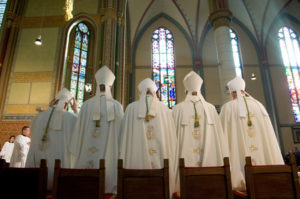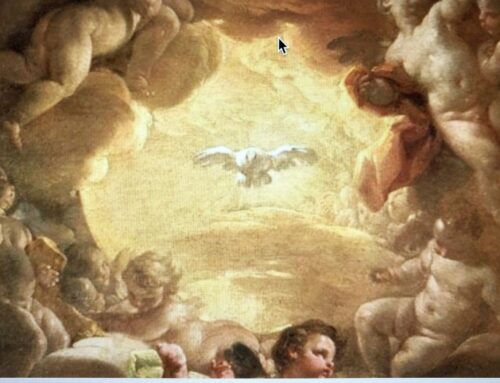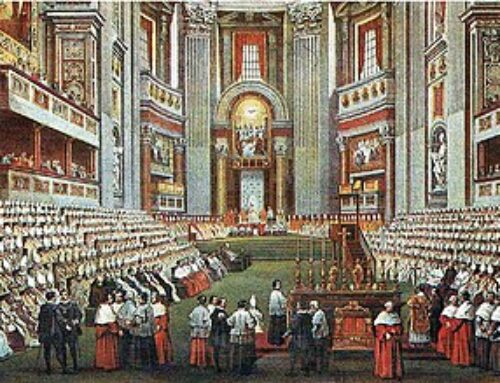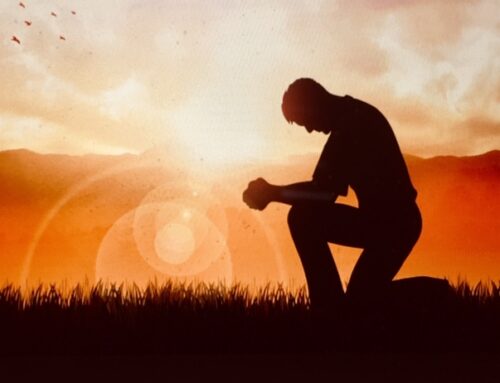 On the matter of homosexuality or, LBGTI+ as it is fashionably known, the Catholic hierarchy have been at least disingenuous and at most dishonest. The troubling result has been confusion and concern among the people they have been anointed to guide in learning and practicing the Catholic faith.
On the matter of homosexuality or, LBGTI+ as it is fashionably known, the Catholic hierarchy have been at least disingenuous and at most dishonest. The troubling result has been confusion and concern among the people they have been anointed to guide in learning and practicing the Catholic faith.
For centuries, the Church has taught that homosexual acts are “unnatural” and therefore gravely sinful. Civil law long classified such acts as criminal, as well, generally with the Catholic hierarchy’s support if not encouragement. In point of fact, that Church teaching can still be found in the Catholic Catechism. Where it cannot be found in any clear and forceful way is in unambiguous pronouncements by the Catholic hierarchy.
It is not as if there were no occasions where such pronouncements would be appropriate, desirable, and necessary to overcome confusion among the laity, particularly among younger Catholics who are not well informed about Church history. Such occasions arise every day. Here are just a few notable examples:
1) Pope Francis has said, “If a person is gay and seeks God and has good will, who am I to judge?” That statement is too slippery to be meaningful. It alludes to Christ’s words, “Judge not let you be judged” while ignoring the equally and arguably more relevant commission of Christ to the apostles: “Whose sins you shall forgive, they are forgiven; whose sins you shall retain, the are retained.” For two millennia, priests and prelates have carried out that commission in the only way possible—by JUDGING the moral quality of human actions and the culpability of individuals in particular cases. Moral theology is all about JUDGMENT of actions; the Sacrament of penance is all about absolution, which depends on the JUDGMENT of what is sinful and what is not.
2) Many Catholic seminaries for decades were run by what the late Andrew Greeley called the “Lavender Mafia”; that is, homosexual priests who favored the selection of homosexual candidates for the priesthood over heterosexual candidates, and in some cases created what could fairly be described as gay brothels. (For details on this enterprise, see Michael Rose’s Goodbye, Good Men.)
3) America Magazine, a Jesuit publication, recently included an essay by editor James McDermott titled “The Catholic Church needs L.G.B.T. saints.” McDermott acknowledged his homosexuality and declared, “Nowhere will we find statues of people like us. We are included in no Catholic tableaux. At best, we are just guests in the story of salvation.” He believes there is no reason for LGBT people to be absent from the roster of saints. Such thinking is no different from the Left’s demanding quotas for racial and ethnic groups in education and the workplace without regard for individuals’ credentials. It also reflects Left’s argument for equity over equality by implying that it is somehow unfair for exceptional virtue to be a requirement for sainthood. Don’t laugh at such nonsense. At this moment a bishop near you may be initiating the process of canonization for a homosexual person. McDermott actually offered them some names for consideration.
To my knowledge, there has not been an outcry of protest from the U. S. Council of Catholic Bishops for any of these challenges to the Catholic Church’s view of homosexuality. I find this troubling not because I am unsympathetic to the difficulties homosexuals have encountered. Not at all. I find it troubling because the hierarchy has chosen to ignore the glaring contradiction between official Catholic teaching and current social mores. They seem to believe that by hinting and winking (but never stating) their approval of homosexuality they will both satisfy the gay community and avoid criticism from Catholic parishioners, and the issue will somehow resolve itself.
Such foolishness is particularly unbecoming in religious leaders who have a special responsibility to “walk in integrity,” “aim at what is honorable not only in the Lord’s sight but also in the sight of man,” “refuse to practice cunning or to tamper with God’s word,” and “put away falsehood and speak the truth” with everyone. [See Proverbs 12:22, and 19:1 2 Corinthians 8:21 and 4:2; Ephesians 4:25, Proverbs 8, respectively.]
To fulfill their responsibility in the matter of homosexuality, the hierarchy will need to put their God-given minds and advanced theological training to work, study the issue deeply and then answer key questions in their speaking and writing. Moreover, they will need to repeat those answers whenever and wherever they encounter contrary claims and instruct priests under them to do the same, both from the pulpit and in their pastoral counseling. Here are the most fundamental of those questions:
If Catholic teaching is in error, where exactly does the error lie? In Biblical classifications of homosexual acts as an abomination? In the Catholic philosophical view that male and female sexual organs are complementary and same sex organs are not? In the assertion that only male/female intercourse can create a child? In the conclusion that only male/female intercourse is therefore natural?
These fundamental questions cannot be answered by reciting personal wishes, popular media narratives, or Vatican officials’ preferences, but only by unbiased examination and honest reasoning.
Whether that analysis confirms the traditional teaching on homosexuality or repudiates it, the hierarchy will be obligated to publicize their conclusion and present the evidence and the rationale that support it.
The risk for prelates undertaking this approach will surely include outraging some colleagues, displeasing superiors, and perhaps forfeiting the chance for advancement in the hierarchy. However, the reward will be immeasurably greater. Millions of informed, insightful Catholics (and others) will regain respect for the hierarchy, and God Himself, the author of truth, will take pleasure in the faithfulness of those He anointed to serve.
Copyright © 2022 by Vincent Ryan Ruggiero. All rights reserved


